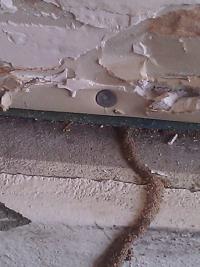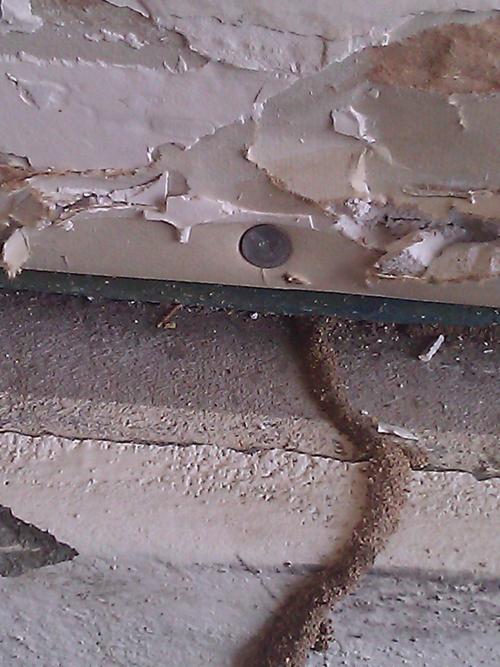Each year, thousands of Arizona residents email or call Rosie Romero’s radio show with questions about everything from preventing fires in their chimneys to getting rid of tree roots invading their sewer system. His goal is to provide answers that suit the specific lifestyle wherever someone lives in Arizona.
Q: I have a home that was built using the Integra block system. But now I have been surprised to find termite tubes on one side of the house at the foundation level. I didn’t think that they could eat my masonry walls. What does it mean?
A: The Integra system, of course, has engineered masonry walls that use tension rods, foamed-in-place insulation and masonry blocks. It’s true that termites can’t eat the masonry, but they’re building those little mud tubes to get past the parts of your house that they can’t eat in order to reach your drywall and the 2-by-4 studs in your walls and roof structures. So you do need to treat your home for termites despite its sturdy block construction.
Q: I’m from California but want to buy a home in Arizona, but all the homes I’ve looked at have plumbing done with PEX pipes. Don’t they use copper in pipes anymore and is PEX safe to use?
A: PEX or XLPE pipes are polyethylene tubes widely used for heating and cooling and for domestic water systems as well as many other uses. The failure rate for this type of piping is very low and PEX pipes are highly recommended by plumbers. Some copper is still being used in homes in Arizona, however, but you don’t need to be afraid of PEX.
Q: Can I grow a ficus tree in my yard in Tucson?
A: It’s not a good idea because these trees are at high risk of damage from frost, and frost can be more likely at higher elevations. Some varieties of ficus are planted outdoors in Phoenix because they are fast growers with dense foliage that make great screening plants. But in years with heavier frosts, they often suffer a lot of damage there as well.
Q: I had a large palo verde in my yard that was partly blown down during a monsoon storm. Now it’s leaning on another large palo verde, and some of the roots have been pulled out of the ground. Can I save this tree? It has not been completely uprooted.
A: You can soak the ground around the tree and gently pull the trunk back up to its old position. In the process, you can try to put the roots back into their old position. This process will work better if the tree is fairly small. But if the canopy is too big and heavy, it probably won’t be possible. But if you succeed in this repositioning, the tree may eventually be as stable as ever. This might not be a job that you want to do yourself. But you can call an experienced tree service to get an estimate on what the cost might be and an assessment of whether the process is worth trying.
Q: When I leave on vacation in the summertime, I’m always puzzled about what temperature I should set on my thermostat for my air conditioning? The house is empty when I’m gone.
A: Probably 88 to 90 degrees will be cool enough to protect your home and also keep down the cost of your air conditioning bill somewhat. Don’t turn off your AC completely; cooling your home a little will be better for your appliances, furniture and any high-tech equipment in your house.





